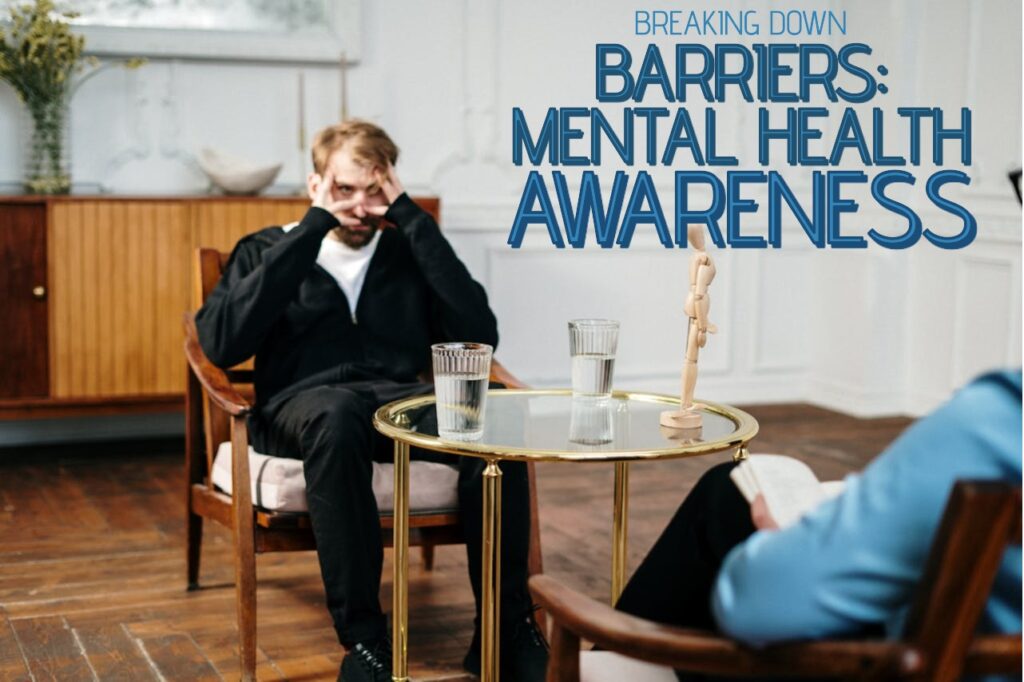
In today’s fast-paced world, mental health has become an essential topic of discussion. Yet, despite its growing recognition, stigma and misconceptions still prevent many individuals from seeking help. Raising awareness about mental health is crucial to breaking down these barriers, fostering understanding, and promoting overall well-being. This blog post explores the importance of mental health awareness, the common obstacles people face, and actionable steps to support mental wellness.
The Importance of Mental Health Awareness
Mental health is just as vital as physical health, yet it often does not receive the same attention. Poor mental well-being can affect every aspect of life, including relationships, work productivity, and physical health. By promoting mental health awareness, we can help individuals recognize early warning signs, seek professional help, and cultivate a culture of empathy and support.
Common Barriers to Mental Health Support
1. Stigma and Misconceptions
One of the biggest barriers to seeking help is the stigma surrounding mental health conditions. Many people fear being judged, misunderstood, or even discriminated against. Society often labels individuals struggling with mental health as “weak” or “unstable,” making it difficult for them to reach out for assistance.
2. Lack of Education and Awareness
A significant portion of the population lacks basic knowledge about mental health conditions and their impact. Without proper education, many individuals dismiss mental health issues as something that can be “snapped out of” or “ignored.” Sharing real-life stories and expert insights can help combat these misconceptions.
3. Limited Access to Mental Health Resources
In many parts of the world, mental health services are either inaccessible or unaffordable. Long wait times, high treatment costs, and a shortage of qualified professionals prevent people from receiving the care they need. Expanding digital mental health solutions, such as teletherapy and online support groups, can help bridge this gap.
4. Cultural and Social Norms
In some cultures, discussing mental health is considered taboo. Societal expectations and family pressures often discourage individuals from acknowledging their struggles or seeking professional help. Encouraging cultural sensitivity in mental health discussions is crucial in breaking these barriers.
The Role of Technology in Mental Health Awareness
Technology has revolutionized mental health awareness and access to care. Mobile apps, online therapy platforms, and mental health forums provide people with resources and professional support at their fingertips. Telehealth has made therapy more accessible, especially in remote or underserved areas. Social media campaigns have also played a crucial role in spreading mental health awareness, promoting self-care, and sharing personal experiences.
How to Promote Mental Health Awareness
1. Encouraging Open Conversations
Talking openly about mental health helps normalize the topic and reduces stigma. Schools, workplaces, and communities should foster safe spaces where individuals feel comfortable discussing their mental well-being without fear of judgment.
2. Educating the Public
Raising awareness through workshops, social media campaigns, and educational programs can provide people with the knowledge they need to understand mental health conditions and support those affected by them. Partnering with mental health professionals to provide accurate information can enhance these efforts.
3. Advocating for Policy Changes
Governments and organizations should work towards improving mental health services by increasing funding, expanding access to treatment, and integrating mental health education into school curricula. Advocating for mental health coverage in healthcare policies is also essential.
4. Practicing Self-Care and Encouraging Others to Do the Same
Promoting self-care routines such as exercise, mindfulness, and adequate sleep can improve mental well-being. Encouraging others to prioritize their mental health creates a ripple effect in communities. Practicing gratitude, journaling, and setting boundaries can also contribute to a healthier mindset.
5. Supporting Mental Health Organizations
Contributing to mental health charities, volunteering, and spreading awareness about available resources can make a meaningful impact in breaking down barriers. Supporting grassroots initiatives that provide mental health education in marginalized communities can also bring change at a local level.
The Impact of Social Media on Mental Health
Social media can be both a tool for awareness and a potential stressor. While platforms can connect individuals with supportive communities, excessive use may contribute to anxiety, depression, and self-esteem issues. Promoting healthy social media habits, such as setting time limits and curating a positive online environment, can help mitigate these effects.
Conclusion
Mental health awareness is a critical step in ensuring that individuals receive the support and care they need. By challenging stigma, educating communities, and advocating for better resources, we can create a world where mental well-being is prioritized. Let’s continue to break down barriers and foster a society that embraces mental health with compassion and understanding. Whether through education, advocacy, or digital solutions, every effort counts toward a healthier and more supportive world.
